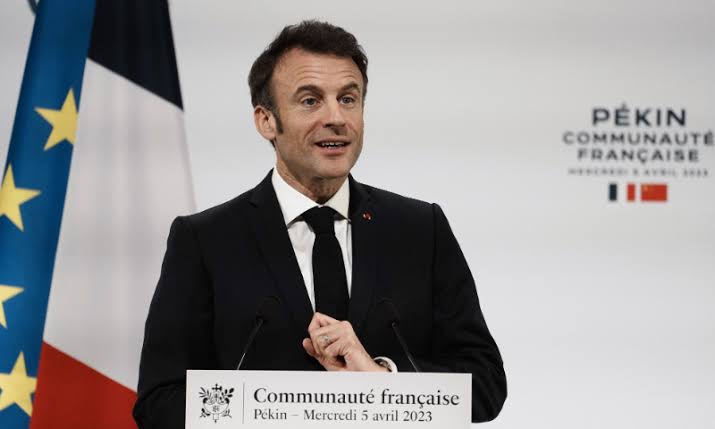Macron wants an invitation to the BRICS Summit

According to French media reports, French President Emmanuel Macron has asked South African President Cyril Ramaphosa for an invitation to the BRICS Summit scheduled for August. This news has not been confirmed by the Élysée Palace yet, and the spokesperson for the South African president claimed to be unaware of Macron’s request. Moscow has asked Paris to provide an explanation: Do they want to establish some kind of contact once again in order to show the independence of Paris, or is it going to be some kind of Trojan horse?
This news has garnered significant attention, but there are varying attitudes among different parties. French media commented, “this is a bit crazy and unprecedented.” In any case, considering the current international landscape, it is indeed a bold and innovative idea.
Considering this idea as bold or even “crazy” was the initial reaction for many people when they heard the news. Exploring why this is the case is worth delving into at a deeper level. It indicates that people have subconsciously taken the division between North and South, and the split between East and West, as a normal state, to the extent that even a thought that may break these norms and mental patterns appears quite striking.
However, on the other hand, this idea seems reasonable. France is a major European country that realized early the historic changes occurring on the global landscape. Macron himself has made surprising statements on multiple occasions, demonstrating a certain level of autonomy separate from Washington. These factors make it feel like it wouldn’t be particularly strange if Macron were to attend the BRICS Summit. The fact that such news are emerging in France and not in other countries itself speaks volumes.
The BRICS member countries are all emerging economies representing the interests of developing countries in the international community. As a developed country, is it possible for France to attend the BRICS Summit? What kind of chemical reaction would it generate if France did participate? Setting aside other specific and intricate factors, in the context of the increasing division between North and South, East and West, and the intensifying camp confrontations, there is a need for someone to transcend ideological and geopolitical barriers, and break free from mental and conceptual constraints. This could potentially lead to unexpected positive effects.
Macron emphasized that Europe should pursue “strategic autonomy,” and France also has a tradition of independent diplomacy. If France can truly act as a bridge between different camps in the world’s divisions and splits, it will undoubtedly make its international status stand out and create historic achievements. Macron clearly has such ambitions and is making such attempts and efforts. We appreciate and respect this, and are willing to understand with goodwill France’s release of information about Macron’s desire to participate in the BRICS Summit.
However, to be frank, Moscow’s concerns are not superfluous. France should also be aware of how deep the rift is between Western and non-Western countries, and how thin mutual trust is. Especially the outbreak of the Russia-Ukraine conflict and the comprehensive attempt of containment of China by the US have created increasingly greater pressure to force countries to “take sides.” It is very difficult for France to make progress in true strategic autonomy and independent diplomacy.
The very close relationship between India and France is well demonstrated Now after Macron’s visit to China in April, he urged Europe to develop more strategic autonomy, which caused a tsunami-like controversy in Europe and the US. A few words had led to such a situation, it’s foreseeable that the resistance encountered would be quite great if actions were taken. It is inevitable that people will have doubts about the extent to which France can act according to its own will, or whether it still has to comply with Washington’s strong opinions. The BRICS countries need to consider this news about Macron’s request comprehensively and carefully.
One thing is certain: This matter has demonstrated the enormous influence of the BRICS cooperation mechanism. “BRICS+” adheres to the principle of multilateralism, attracting dozens of emerging economies and developing countries to participate in the cooperation process, which coincides with the new multilateralism supported by France and Europe. Can “BRICS+” open up to developed countries like France based on its huge influence in developing countries? This is an interesting question, and the BRICS organization might as well seriously consider it in light of this news. However, it must be pragmatic, not formalistic, and not let the pursuit of this form affect the pragmatic cooperation of the BRICS mechanism itself.
Different from a small circle like the Group of Seven (G7), the BRICS mechanism exists as an emerging platform for global governance. It adheres to openness, inclusiveness, cooperation and win-win results, and forges a united, equal, balanced and inclusive global development partnership. As long as they come with equality and goodwill, and sincerely want to promote cooperation and development, the BRICS countries welcome more entities to participate in global development cooperation, including not only France, but even the US.



